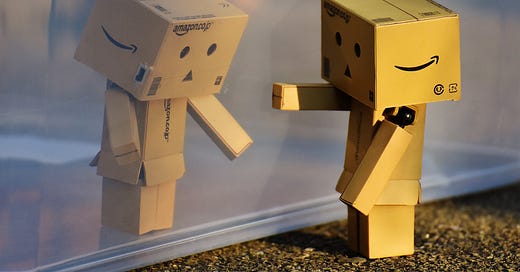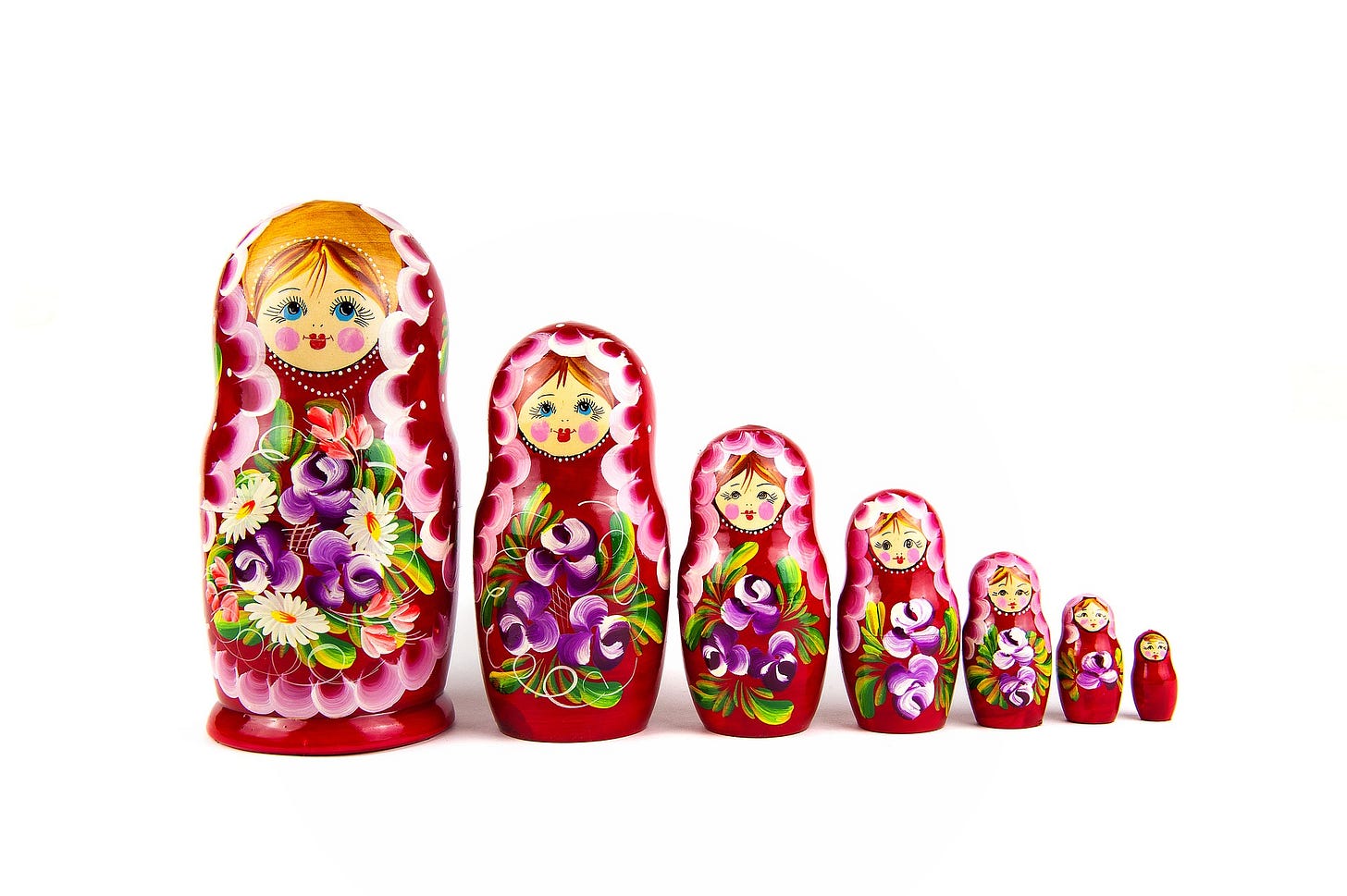In my early twenties many years ago, I lived at Union Theological Seminary (UTS) in New York City.
During those two years, I was a bit of a mess. My mother died after a four-year illness, and it was all I could do to drag my grief-stricken self out of bed by 2pm every day for tutoring jobs that barely paid the bills and for my weekly therapy session during which I sobbed non-stop. On occasion, I also staggered through some half-hearted auditions for acting gigs.
The rest of the time, I slept… and clung to my then-boyfriend who was getting his masters in divinity at UTS (I always loved saying that – how, exactly, does one “master” divinity?)
It was a bleak time. And yet when I look back at that time, I feel a certain wonder. How was it that at my most vulnerable and raw, I was introduced to the theological concepts most needed to heal the gaping hole in my heart?
One in particular stands out, because I’ve carried it with me every day since. It is a definition of sin that I had never encountered before and have rarely heard since. Unfortunately, I don’t know who said it, but I think it’s perfectly brillant:
“Sin is anything that separates.” Us from one another, us from ourselves, us from nature, reality, or a higher power.
Fairly simple concept on the surface.
I grew up in a hash of Protestantism, where sin was often broadly defined as wrongdoing, or transgression against the laws of God. I’m certain that other religions may define sin differently, and a full exploration of those variations is far beyond the scope of this essay.
However, it’s pretty clear that all of the most basic moral teachings of every religion – let’s call those teachings “The Don’ts” – prohibit certain actions: don’t kill, don’t lie, don’t steal, don’t covet. I think we can all agree that killing, lying, stealing and coveting all create separation of some sort.
Where it gets really interesting, in my opinion, is what lies underneath the surface of the separation-as-sin definition. Like a Matryoshka nesting doll, when you open the definition up, you find layer after layer of significance, paradox, and challenge – particularly in the context of our current world. So let’s gently open that doll and look at some layers.
I’ve mentioned
's excellent book Hate, Inc.: Why Today’s Media Makes Us Despise One Another before, and I’m doing it again, because it explains in demoralizing detail how the legacy media and those in power divide us by design. They profit from our polarization, as does the government when it pushes narratives that set us up to dismiss one another purely on the basis of party affiliation.Red and blue have always disagreed (how quaint!), but the now-commonly accepted idea is that if you vote one way, you are a good person, and if you vote another, you are not even worth listening to. That is sin, by this definition. And we, the citizens, pay the sad price: broken friendships, divorce, families that no long speak to one another.
I speak from experience. In 2020, I was inches from divorce over ideology. (There were other issues that needed attention, too, but our differing views of what was happening in the world were the real drivers.) I had bought into the idea that my husband and I no longer had any common ground – a belief that was stoked by the different news sources we followed.
Fortunately for us, we worked hard to bridge the gap that had developed. With the help of an extraordinary therapist, we succeeded – stay tuned for that future essay.
Other close relationships in my life have not fared so well. My sister who lives in New Zealand cut me off, saying I was “alien” to her for my beliefs and choices. Keep in mind, we never had a single conversation about our beliefs. As far as I can tell, she constructed her picture of who I am out of second-hand information: government statements and media reports.
Sin-as-separation was operating on two levels, here. First, on the level of irresponsible media: news services have intentionally sown divisiveness by rejecting the original intention of journalism (to present both sides of an event with as much neutrality as possible, and allow their viewers/readers to make up their own minds) in favor of greed.
The other level was that of interpersonal relations. It was not just her decision to cut me off that severed our bond. The process of separation started when she made no attempt to connect with me and understand my choices, essentially judging me from afar.
I’m still struggling with a response to the separation she initiated; if I allow it to stand, am I participating in sin? Is it my responsibility to attempt to reunite? Probably. (I told you, this definition of sin is challenging!)
Let’s open another doll.
If you accept this definition of sin, it’s hard to see most of the policies enacted during the past two years as anything but sin. Closing borders so that individuals can’t come home to be with their elderly parents? Shutting down schools and making students learn on computer screens from home, isolated and lonely? Allowing people to die alone? Lockdowns? Social distancing? Refusing to talk to constituents, for any reason?
Divide, divide, divide. Sin, sin, sin.
“If you place two living heart cells from different people in a Petrie dish, they will in time find and maintain a third and common beat.”
Molly Vass
Notice that they don’t put each cell in a separate dish… and then do a Zoom call between them. Those two cells are IN THE SAME DISH. Similarly and magnificently, people sitting in a theatre together, watching the same play, will eventually entrain their hearts together to beat as one.
Again, this doesn’t happen by having two people watching the same show in living rooms separated by 1000 miles. Presence together is essential, though we are often told that it’s not. Would you rather die with your loved one holding your hand or FaceTiming you instead?
Let’s dive into another layer of the doll and look at this definition of sin from another angle, a more internal one. We’ve seen what can separate us from one another. What separates us from ourselves?
I know many individuals who cannot stand being alone. Woody Allen once talked about taking a newspaper with him in the elevator so he wouldn’t have to spend all that time with just himself.
Enter the smartphone. Has there ever been as powerful a tool for self-avoidance? I always thought alcohol, drugs, and television were the kingpins of addiction, the go-to self-medications for any uncomfortable feelings. But now, we can plug ourselves into a handy-dandy carry-along device anywhere, anytime, without vodka breath or a telltale nasal drip.
The best part? With that one tool, we can lose ourselves in almost infinite ways: we can surf the web; we can compare ourselves endlessly on social media; we can watch Netflix, porn, the news, funny cat videos; we can buy, sell, comment, and like. We can distract ourselves from ourselves indefinitely; can you even imagine how seductive the “Metaverse,” the ultimate escape from our messy, painful, real lives, will be?
Anecdotal evidence within my children’s friend groups (my kids are 20, 22, and 24) mirror national statistics about a surge in mental illness among adolescents and young adults. They are anxiety-ridden, depressed, even suicidal. I’ve heard parents describe how quickly these conditions arose during the past two years, seemingly “out of nowhere.”
I would argue that the past two years were just the tipping point. In 2016, the documentary “Screenagers” clearly demonstrated the link between screen time and declining mental health in teenagers. Of course, taking away EVEN MORE daily, in-person connection would push some young people over the edge.
I want to pause here and make it clear that I’m not saying that all distraction is sin; how could I, given my belief in the healing power of art? It comes down to intention and consciousness, I believe. Sitting down to watch a movie intentionally is different from unconsciously reaching for the remote or the phone in order to make pain disappear.
I also want to clarify that I am not advocating that we eschew technology. Like any tool, the smartphone is agnostic. It clearly has marvelous uses as well, like calling or texting a loved one to create connection. I’ve been grateful to reconnect with friends through social media. Again, intention matters.
So does balance. The key is to find a healthy middle ground, where using the device to “stay connected” does not become a total substitute for being physically present with another living, breathing human being.
Another layer to uncover: nature. I stated above, “Sin is anything that separates,” and I included “us from nature” in the list. Here’s why.
Vendana Shiva, world-renowned Indian physicist (she holds a PhD in quantum theory) and environmental social activist, writes eloquently about our connection to the natural world, and the peril associated with humanity’s increasing disconnection to it. Her book, Oneness vs. the 1%: Shattering Illusions, Seeding Freedom, transformed my understanding of our relationship to nature, earth, and one another. I highly recommend it. In it, she writes:
“Over two centuries of the fossil-fuel driven industrial age, an intellectual architecture has been created, which artificially separates us from the earth, and from each other. I have called it, “eco-apartheid,” the imagined separation between humans and nature.”
That “eco-apartheid” concept is what allows us to view the elements of nature as individual commodities, rather than what they truly are: an integrated whole, indivisible. As she says,
“eco-apartheid…separates the interconnected aspects of nature, dividing it up into fragmented, separable parts to be exploited, owned, traded, destroyed, wasted… It separates the powerful from the consequences of their actions, creating the possibility of zero liability, zero responsibility. Separation allows a handful of men to imagine they are masters of the universe, who can conquer, own, manipulate and control nature and society for accumulating power and wealth without limits.”
She continues, claiming that the rule of the 1%, this modern-day colonialism, is actually based on separation. Think about that for a moment. If she’s correct, then our entire economic infrastructure is therefore based on… sin.
There are many writers, professors, teachers, health care professionals and theologians who are using the word “evil” to describe some of what’s happening in our world today. I’ve always shied away from that word, and I haven’t really embraced it in the context of our current global situation. It seems so old-school preacher-y, so fire-and-brimstone-ish.
But I feel now like I’m starting to formulate a workable-for-me definition of evil: a state of total separation from one another, from oneself, from nature, reality, or a higher power. It makes sense to me that a human being (or group, institution, corporation, or country) who continuously and thoroughly engages in actions that create separation could eventually slide into that “evil” definition.
According to Shiva, continuing to buy into the illusion of separation, the incorrect construct that human beings are separate from the natural world, is actually dangerous. The survival of humanity on this planet does not depend on wealthy individuals peddling solutions; it depends on the collective peoples of the earth embracing and nurturing the earth’s interconnectivity.
She writes,
“Only as one earth community and one humanity, united in our diversities, can we hold ourselves together, step away from the precipice and escape the destructive, ecocidal, genocidal rule of the 1%. We can turn around and walk to our freedom.”
I agree. It is a sin not to.
Which brings me to the last layer, the tiny, magnificent doll nestled inside all the others.
Mark Nepo, in his book Awakening Spirit, says “there is in the very nature of life itself some essential joining force.” He also says,
“…everything that divides and separates removes us from what is sacred, and so weakens our chances for joy.”
I believe “removes us from what is sacred” is another way of saying, “separates us from the source of all being or ground of all existence.” Call it God, Allah, Goddess, Jehovah, Yahweh, Divine Presence, Grace, Great Oneness, whatever works for you. I’ll use Grace.
What separates us from Grace? Everything I’ve already mentioned, because anything that separates us from others, ourselves, or nature – ideology, judgment, addiction, distraction, greed, and all of the The Don’ts – also pulls us out of relationship with Grace. Why? Because all of those actions banish us from our hearts, where Grace resides.
“So when we engage in devotional practices… we are opening our hearts, and our hearts are boundless. That’s where we awaken to the essential truth of non-twoness.”
Mirabai Starr, Wild Mercy: Living the Fierce and Tender Wisdom of the Women Mystics
Returning to our own hearts, again and again, is the surest way to stay connected to Grace. It’s not easy, especially when fear – possibly the greatest separator of all – is triggered within us. When we succumb to fear, we tighten down our hearts and become susceptible to division in all its forms: we criticize ourselves for our perceived “faults;” we reject others for their viewpoints; we stop being curious; and most grievously, we lose our capacity to empathize.
Our job is to identify what returns us to our hearts, so that we can remember “the essential truth of non-twoness,” as Starr says. When I find myself lacking compassion or withholding forgiveness (Hello, sister in New Zealand?) I know it’s time to dance or sing or write my way back to love. And then pick up the phone.
All those many years ago, when I was at UTS with my fledgling understanding of sin-as-separation, I thought that the death of my mother must be some sort of sin, since it separated her from me. I didn’t understand then that the only sin, if you can call it that, was my perception of her death as something that could separate us. That mistaken impression is what severed our connection, not her physical passing.
It wasn’t until recently that I fully grasped what so many wisdom traditions have tried to teach humanity: we are all connected “interbeings” as Shiva calls us. We are all One. We cannot be separated as a human family — not in real life, and not in death. In superficial, material ways we can, but each one of us has the power to overcome that sin of separation by reaching across all divides, whether or not we created those gaps.
Take a close look at your life and at the world around you. Can this definition of sin help you see separation in a new light? Is there someone with whom you are estranged? Are there groups of people who are marginalized, cut off from the whole of society? Where can you bring more connection, more conversation, more unity? How can you strengthen “your chances for joy?”
To change society, we really do have to start with ourselves. How? The nesting dolls might lead the way. Imagine that within each of us, there is layer after layer of protective shell. Don’t be deterred. Patiently love each layer into opening itself until the sacred heart of Grace is revealed, in all its unifying power.








Yes exactly! This is the yoga view and has gotten me thinking a lot about all the same politics
Beautiful Mary, Love the definition of sin and how you explored it.